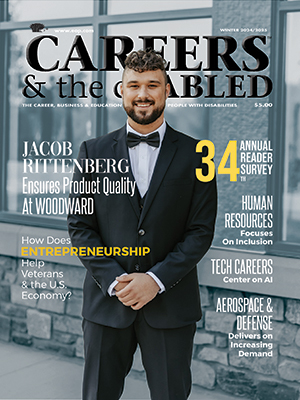

College Support
Students with hearing loss and disabilities can request accommodations through the Disability Services Office, under Briana Juneau on the Accommodations and Disability Services page. Please see the "Hearing Loss" Guide for a list of possible accommodations a student may request for your class, and reflect on how those accommodations might be in use in your class environment. Some solutions are on-site and/or off-campus but this is not a finalized list of options, and students may request something not on the list.
Briana Juneau will contact you in regards to the request from the student and discuss options for accommodations. Supplementary aids and services are not just for the student. Professionals and other staff members can also be provided assistance on behalf of the student, such as specialized training on a device used by a student or specific strategies and techniques needed to support a student. Some options may require additional support from the Academic Support team, such as the Testing Center for scheduling testing/time accommodations, or the Library for obtaining materials or equipment. Here are the contacts in each department:
The Center for Teaching Excellence's primary goal is to support faculty--both full-time and adjunct--in creating enriching, engaging, and effective learning experiences for all students. The Center can help you structure your course around increasing accessibility for all students by helping introduce faculty to audio aids, video software, and course design. Here are the contacts for the CTE:
Accessible Environment Concepts for Courses
Web Accessible Design Concepts for Courses
Community Resources
Louisiana Commission for the Deaf
The Louisiana Commission for the Deaf (LCD) serves as the principal agency of the state for engaging, empowering, and enriching the lives and opportunities of Louisiana d/Deaf, DeafBlind, and hard of hearing individuals. The organization provides services and programs to support communication access, advocate for the needs and rights of people who are d/Deaf, and establishing standards for the state's American Sign Language Interpreter workforce with training and professional development.
Louisiana Assistive Technology Access Network
The Louisiana Assistive Technology Access Network (LATAN) is a nonprofit organization with the mission to help people of all ages with functional limitations or disabilities to gain greater independence at work, home, or school through the use of assistive technology. Programs include assistive technology lending, demonstrations of assistive technology, and a vendor list to acquire assistive technology.
National Resources
National Deaf Center on Postsecondary Outcomes
The National Deaf Center on Postsecondary Outcomes is a technical assistance and dissemination center funded by the U.S. Department of Education’s Office of Special Education Programs (OSEP). The organization share information, networks, and strategies to improve continuing education and training for deaf people.
National Center on Accessible Educational Materials
The National Center on Accessible Educational Materials for Learning at CAST provided technical assistance, coaching, and resources to increase the availability and use of accessible educational materials and technologies for learners with disabilities across the lifespan.
National Association of the Deaf
The National Association of the Deaf (NAD) is the nation’s premier civil rights organization of, by and for deaf and hard of hearing individuals in the United States of America. The organization's advocacy extends in the areas of early intervention, education, employment, health care, technology, telecommunications, youth leadership, and more – improving the lives of millions of deaf and hard of hearing Americans.
 Optimizing Outcomes for Students who are Deaf or Hard of Hearing (Electronic Resource)
Optimizing Outcomes for Students who are Deaf or Hard of Hearing (Electronic Resource)
 Journal of Postsecondary Education and Disability (Electronic Resource)
Journal of Postsecondary Education and Disability (Electronic Resource)
 Careers & the disABLED Magazine (Print) Available at Fletcher Library
Careers & the disABLED Magazine (Print) Available at Fletcher Library
 This website is licensed under a Creative Commons Attribution 4.0 International License unless otherwise noted.
This website is licensed under a Creative Commons Attribution 4.0 International License unless otherwise noted.

